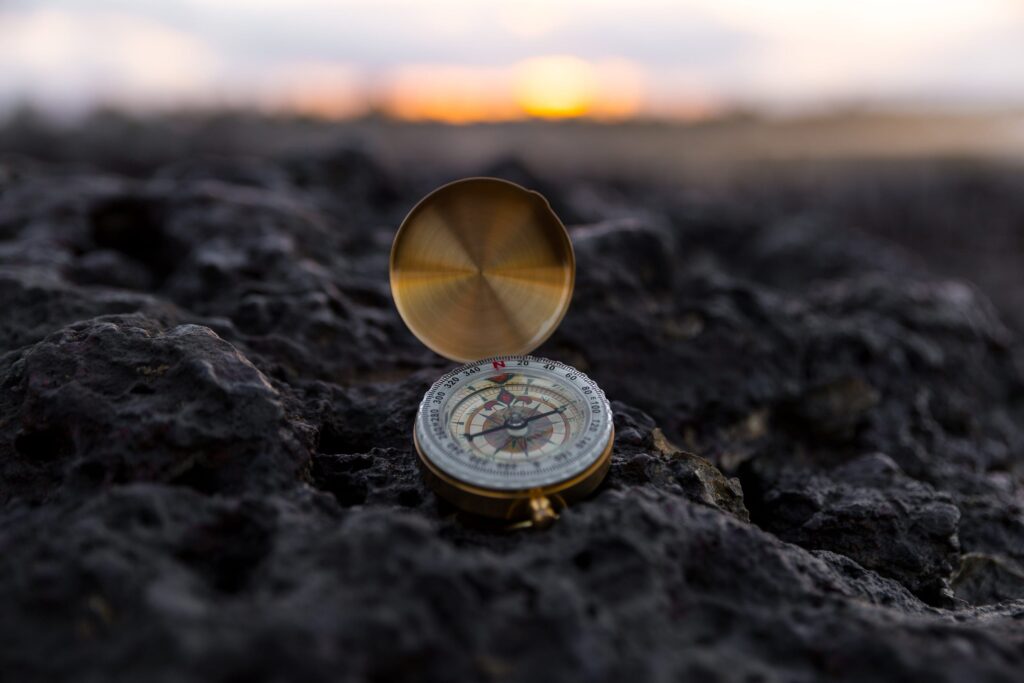
Last month, we explored the ways emotions—reactivity, shame, and miscommunication—can pull us away from ourselves. But those patterns don’t just disrupt our relationships. Over time, they bury our clarity and cover the sense of direction we long for.
When we’re constantly reacting to life—defending ourselves, trying to prove our worth, or avoiding discomfort—we lose touch with something deeper: our inner compass. That quiet knowing, that sense of “this is who I am,” gets drowned out in the noise.
Have you ever felt like purpose is a hidden prize everyone else has discovered except you?
You try different jobs, follow the advice of family, chase milestones, scroll endlessly through self-help content—and yet you still feel empty. The harder you search, the further away it seems.
But what if the problem isn’t that you haven’t found your purpose—what if you’ve simply forgotten it?
We are often told that purpose is something external, something to chase, earn, or stumble upon. That story fuels comparison and restlessness. It makes us believe we are behind or broken if we cannot point to a single calling.
But purpose is not a scavenger hunt. It isn’t waiting somewhere outside you. Purpose is already inside you. It is the quiet thread woven through your story. The real question is not Where do I find it? But what have I forgotten?
Forgetting doesn’t happen all at once. It is a slow layering of life. Families tell us what success should look like, and we silence the small voice that longs for something different. Culture pushes us to meet timelines and milestones until we no longer pause to ask what truly matters to us. Social comparison feeds the illusion that everyone else is living with clarity while we stumble in the dark. And then there are the inner blockages: the way pain or trauma can sever us from our authentic desires, the way fear of failure convinces us to bury the things that once lit us up, the way self-doubt whispers, “Who are you to think you have a purpose?” Over time, all of this piles up, and we stop recognizing ourselves.
For some, the forgotten purpose was creative. A woman once loved painting as a child, but family expectations pushed her into a “sensible” career. Years later, after burnout, she picked up a brush again, not to make money but to feel whole. She remembered that her purpose was to bring beauty and reflection into the world—and from there, she began teaching art therapy to others.
For others, the forgotten purpose was rooted in care. A man grew up naturally drawn to helping people solve problems, but comparison led him into chasing a high-status job that drained him. When he finally admitted that he found energy in listening and guiding others, he shifted his path toward coaching. He remembered that his real purpose was not status but service.
Sometimes the forgotten purpose hides under fear. A young woman felt called to write, but self-doubt told her it wasn’t practical. She chose safer paths until one day, journaling through a season of loss, she rediscovered her voice. She realized her writing could heal—not only herself but others. Her purpose was never gone. It had only been waiting beneath her silence.
And sometimes it is hidden under trauma. Someone who once loved community and connection pulls away after heartbreak. They forget that their joy was always found in gathering people. Years later, when they host a small dinner for friends, they feel alive again. They remember that their purpose is found in creating spaces where others feel safe and seen.
When purpose feels forgotten, it doesn’t always appear as an obvious crisis. It seeps in quietly. It looks like restless scrolling, decision fatigue, a quiet sadness when celebrating other people’s milestones, and a sense of being a stranger in your own life. These are not signs that you are broken. They are signals that something true within you has been covered over, waiting to be remembered.
And remembering is never as dramatic as we think. It happens in small, tender ways—picking up a forgotten hobby, noticing what energizes you, tracing the themes that keep returning. These moments remind you that purpose isn’t something to hunt down. It’s something you return to.
You do not need to reinvent yourself to live with purpose. You do not need to go chasing after something new and shiny. You need to come home to what has always been there, to the part of you that life, fear, and pressure made you forget.
So pause for a moment. Strip away the noise. And ask yourself: What part of me have I abandoned that still quietly waits to be remembered?
With Love,
Lydia
View comments
+ Leave a comment